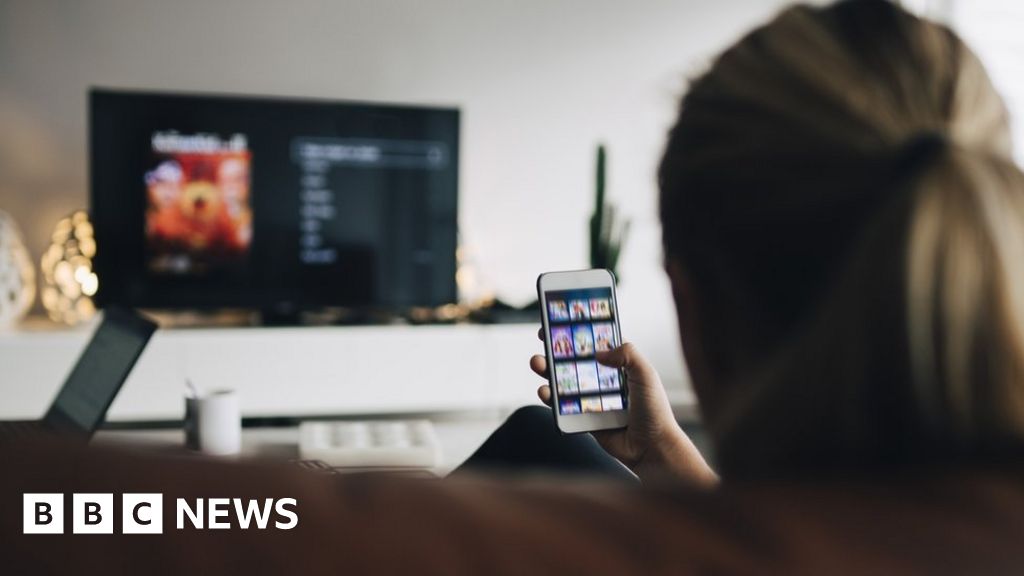Is anyone suprised by this?
Why would I ever turn on the telly to watch what someone else decided I should be watching at that time? It’s crazy in the current landscape.
I mean I don’t watch “normal” TV either but I can see the potential appeal.
Most TV is just trash and a waste of time anyway so for some I guess the feeling of connection is more important than the particular content.
Take Saturday night telly for example. There’s a really long street near me full of kinda posh-looking terrace houses and the living rooms are really easy to see into, especially at dusk before the curtains get closed.
Sometimes I walk down the road on a Saturday night and you see such a diverse range of people from families to young couples to old people sat with a blanket on their own all watching the same program which there’s something quite nice about I think. Likewise with things like Strictly, Bake-off etc people seem to enjoy watching the episodes at the same time so they can discuss with their friends/on social media.
I don’t watch sports either but I’m in a WhatsApp group with some friends and every now and again a message will just randomly appear saying something like “shit effort” and I know there must be a football game on. It’s kinda nice that they can just assume the others are watching.
Basically I think when you’re watching for entertainment, being able to curate your experience more is really great, but there’s a social dimension to scheduled telly that I think some might still appreciate.
It’s dying, though. I do social watching with friends all the time, and pretty much no one I can think of sees anything as it’s being broadcast. Kids, work, timezones, etc all get in the way.
Sporting events
Live events like sports are also gradually being picked up by streaming services instead of traditional broadcasters.
How often do you find yourself scrolling past shows wondering what to watch, and realise you’ve wasted 30 minutes doing so?
Not at all, I usually go in knowing what I want to watch.
Well it’s always useful to back our assumptions with actual numbers.
If these trends continue it’s going to increase pressure on the BBCs licensing model I would guess.
Given that the lisence covers iPlayer and their podcast output as well it seems like they’re already adapting.
But iPlayer and BBC Sounds are just one more competitor in the streaming and podcast market.
If enough people stop watching broadcast television, the argument to maintain the TV license disappears.
OK, I’m confused up near the start of the article you have the rather startling (to me) stat
" the proportion of people who tune in each week was down from 83% in 2021 to 79% in 2022."
Then further down you have
“Ten years ago, the average evening audience sitting down to watch the evening schedule at around 9pm was around 20 to 24 million people. These days, on a summer Saturday, the number is getting close to half of that.”
12million is what, 20% of the UK population ?
On the first stat I find that extremely implausible, literally the only person I know who regularly watches live TV is my elderly neighbour (70 pushing 80), fair enough habits of a lifetime and all that. But none of the adults I know watch live TV except for “events” like the FA cup that aren’t on a streaming option. Literally none. How can 79% of the population be watching live tv and I know 1 out of what, 50 odd people do in my social circle ?
The 20% figure is far more reconcilable - I’m sure there’s a decent slice of people still watching East Enders and Love Island, but 79% is just gobsmacking
79% and 20% are two different stats. The 79% is the percentage of people who at some point, any point, in a week watch live TV. Even just one minute. 20% is the average share of people who are watching at 9pm, so one in five people are watching.
There’s a lot of selection bias in your estimate. When I walk the dog I go past lots of houses that have their TVs mounted so they are visible from the street, and there’s plenty that are watching live TV. It’s not just major events like sports, but many people have it on for soaps, a distraction for the kids, or just mindless guff like The Chase. I’d say it’s easily one in five out in suburbia.
Sure, but how many of those are watching live to air ? As opposed to the witcher or whatever on a streamer ?
All my friends have TVs and most nights they’ll have something on, but it’s netflix, Disney+ etc.
I was the laggard on ditching the tv licence - I hadnt had an aerial in 10 years, but I paid it for access to the nonlive BBC stuff. After realising we never actually watched anything I asked around and most everyone responded that they’d ditched it, a few kept it for the occasional “event” programs.
It’s certainly not a valid poll (demographics of my pub mates varies on ethnicity but not so much on age and gender), so I appreciate it’s a loaded sample, but the near universal reaction was "you’re still paying a licence, really ? Why ?
The Nielsen ratings could have a bit of a flaw. A few years ago I was approached myself to take a box.
At the time, I wasn’t watching live TV at all, and I didn’t want the faff of a monitoring box in my living room for £100 of vouchers.
This could mean that the metric gets skewed towards linear viewers: 1:10000 homes might have a box, but those boxes might be disproportionally accepted by people who already watch tv.
That’s a good point - I know polling is becoming problematic because the majority of people still retaining landlines are older and conservative, it has become quite difficult to achieve demographic balance for the sample for polling (and internet polling has known biases too)
Yeah, everytime I read reports like this I’m like “where are all these people” as well, but Germany (where I’m from) reports similar numbers:
81% tune in at least once a week, and 65% (!) daily ( https://www.ard-zdf-massenkommunikation.de/files/Download-Archiv/MK_Trends_2022/2209_Egger_Rhody.pdf )
There might be a number of reasons, but I do think if you only know 1 out of 50 you either are quite young but I would think you are just not aware of them doing so. Even 35% of the 14-29y age group in Germany report they watched TV yesterday. And you’d be surprised how common it is to still watch the evening news or the “sunday crime show” even among younger people, for older age groups it’s simply not a question. In Germany, people above 50 are 50% of the population. Also it heavily depends on your status/class/whatever.
But I do also doubt the validity of the data, since it’s prone to be skewed heavily (I should know, I actually did similar field tests in the past). For once, they’re relying on people’s self reports and those are always terrible. If you ask whether people did anything chances are they just click “once per week” without even thinking about it. Also, the German questionnaire for example asks for “TV programme currently running” but also “watched in a Mediathek” (our version(s) of the iPlayer). However, you can watch the current programme in a Mediathek, so that doesn’t make much sense.
Not young and have two teenagers that don’t watch TV ever (youtube on the other hand, oh lord).
Probably biased sample (age, tech biased etc) but I did a couple of straw polls at the pub when I was thinking of ditching the tv licence and that’s the basis for the statement. They could of course be telling fibs 😁 but the general consensus was “why have the tv licence with what you can get from netflix Amazon disney etc”.
straw polls at the pub
So last time I was visiting friends in Northern England one of the really important events was going to the pub to watch the match. There you go, one room full of people clicking „watched live tv last week“.
Good point. But aren’t most of the matches (and most sports generally) on paid/cable tv ? Everything of any consequence seems to be on Sky or BT Sports ? I rarely watch sport so I’m a bit out of the loop. I understood a handful of major events are legislated to have to be available on the BBC but only a few. Is that wrong ?
The “live tv” in the article above is just the stuff you need a TV licence for I thought ? BBC and ITV ?
If all the football fans are able to watch on BBC then all of sudden that’s a much bigger number for sure.
Arial isn’t even connected to my tv I just use streaming services.
We moved into a new build a year ago, and I keep threatening to install a sat dish so I can hook the freesat box up, but over that last year, we have just been watching streaming services, iplayer, itvx, netflix, etc… at the moment, I see no need to get up those ladders!
We ditched Sky a while ago and couldn’t connect our traditional aerial back in (apparently engineers do this when installing satellite dishes). We just use Roku now, I don’t really notice the absence of Freeview any more
Rarely watch live tv now, between the adverts and reality/game shows there’s barely anything of worth to watch.
What little there is, I’ll record on the youview box then watch at my convinience and zip though the ads.
I’ve basically got no interest in what the stations want to produce.
Not surprising, but I wonder about the validity of the data. They don’t monitor everyone watching TV, only a relatively small sample, and I feel this sample is inherently biased towards people who do watch TV. So the actual drop could be even greater.
No TV loicense required soon innit?







